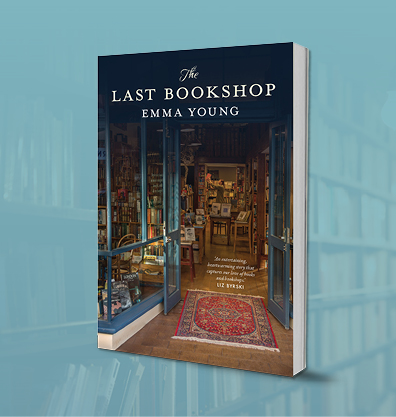Full-time journalist turned novelist Emma Young shares her top five productivity tips on how to write a manuscript in your spare time
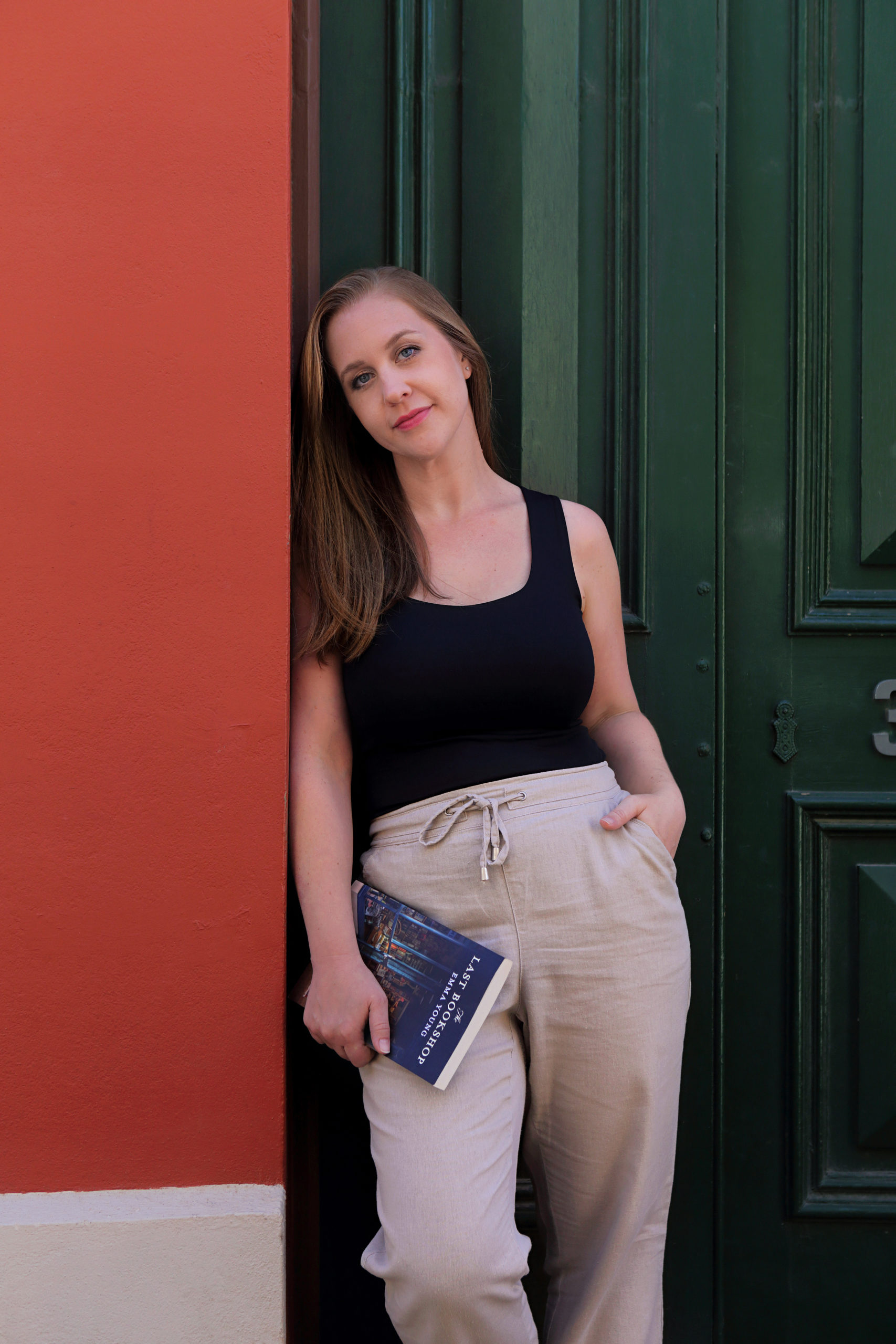
Hi, I’m Emma Young. My debut novel, The Last Bookshop, is about Cait Copper, owner of the last bookshop in the city centre and the last independent store remaining on the city’s most exclusive strip. Cait thought she’d reached happily ever after when she opened Book Fiend, but the city’s changing. Costs are rising, profits are dropping and global brands are circling her prime location. After one final disaster, Cait’s got to make a tough call: go down – or stand up and fight?
The book was shortlisted for the Fogarty Literary Award and will be published in March 2021. From first draft to publication it’s taken five years, during which I’ve also drafted my next two novels while also working full-time.
Writing for a living then writing at home in your spare time is not easy. But over the years I gleaned tips from the greats that kept me motivated and productive. Here are my top five.
You can do nothing, but you can’t do anything else.
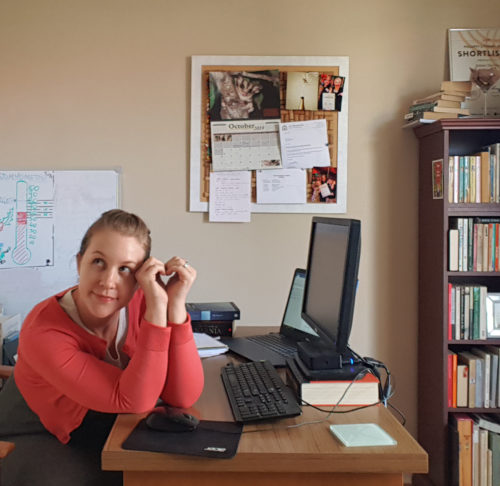
Learned from: Neil Gaiman
Where: The Tim Ferriss Show podcast
‘… when I go off to write, that’s my biggest rule … I’m absolutely allowed not to do anything. I’m allowed to sit at my desk, I’m allowed to stare out at the world, I’m allowed to do anything I like, as long as it isn’t anything … I’m giving myself permission to write or not write, but writing is actually more interesting than doing nothing after a while. You sit there and you’ve been staring out the window now for five minutes, and it kind of loses its charm. You’re going, “Well, actually, let’s all write something.”’
This is reassuring when confronting the blinking cursor. When I sit down, I tell myself I don’t have to write. I just have to open the document. This takes the dread away. Eventually, like Gaiman says, you get bored. You think about your project. Eventually you jot something down. And away you go.
Simple maths equals completed manuscript.
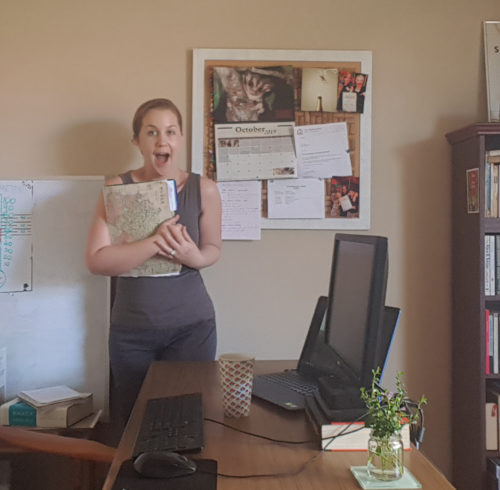
Learned from: Fiona McIntosh
Where: How to Write Your Blockbuster
This practical, cheery guide turns an impossible feat – a first novel – into a logical equation with known quantities: total word count (average word counts of different genres are available online) and the length of time you have. From these you can derive words per session and sessions per week. From memory I think McIntosh does something like 1,200 words a day, five days a week, for a certain number of months.
So I wrote my plan. Saturday and Sunday mornings, 1,200 words per session, for 18 months. Of course, in practice my approach fluctuated. It ended up taking 12 months. My second manuscript was 1,200 words a day, five days a week and took only a few months. Point is, if you sit there and manage your designated chunk per sitting, with regular sittings, you will get your draft. Whether it’s any good is irrelevant. See below.
Don’t let your brain get in the way.
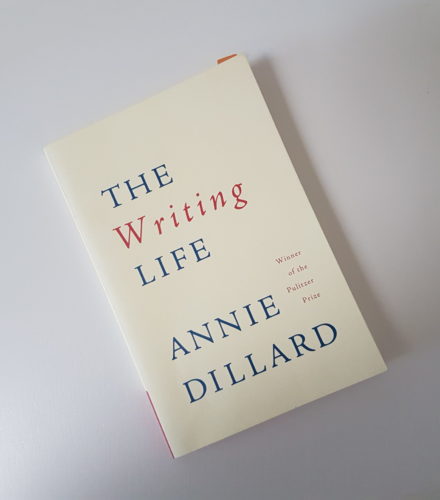
Learned from: Annie Dillard
Where: The Writing Life
‘The feeling that the work is magnificent, and the feeling that it is abominable, are both mosquitoes to be repelled, ignored, or killed, but not indulged.’
Drafting time is not for evaluation. Or editing. Of course you feel crippling doubt. But the difference between an unpublished writer and a published one is the published one held this at bay. Of course your first draft is no good. It’s not supposed to be. It’s just supposed to exist. So just get the words down. Don’t read over them or stop and think. Or you’ll never move on.
Limited time? Smash it out with the Pomodoro Technique.
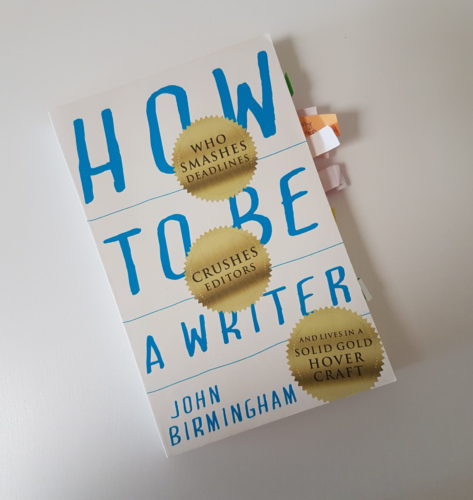
Learned from: John Birmingham
Where: How to Be a Writer
It’s a procrastination-buster: write for 25; rest five; write 25; rest five; continue. John Birmingham swears by this and he is one productive writer. There are timers online you can use to customise. I used Pomodoros to smash a major rewrite of my 80,000-word manuscript for my second book, Thunderbolt Lodge, during a two-week fellowship at Katharine Susannah Prichard Writers’ Centre. Pomodoros makes daunting projects manageable because the next cuppa’s always only 25 minutes away. You may go barmy but you will get it done.
Spike rejections defiantly.
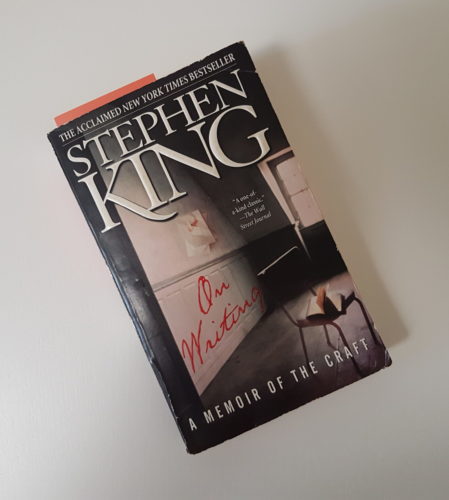
Learned from: Stephen King
Where: On Writing
‘By the time I was fourteen (and shaving twice a week whether I needed to or not) the nail in my wall would no longer support the weight of the rejection slips impaled upon it. I replaced the nail with a spike and went on writing.’
It would be another 10 years before he sold a novel. And that’s the King! Rejections are not an excuse to stop. They are a routine sign of progress. One agent who rejected The Last Bookshop spent an hour on the phone explaining everything that was wrong with it. It was terrifying to learn just how much I had to do. But after I did it, I got a contract. So while you’re waiting, plan the next send-out so that you can action it immediately, and don’t waste time wallowing. If you are lucky enough to get free feedback, use it!
The Last Bookshop by Emma Young is available online and in all good bookstores.



